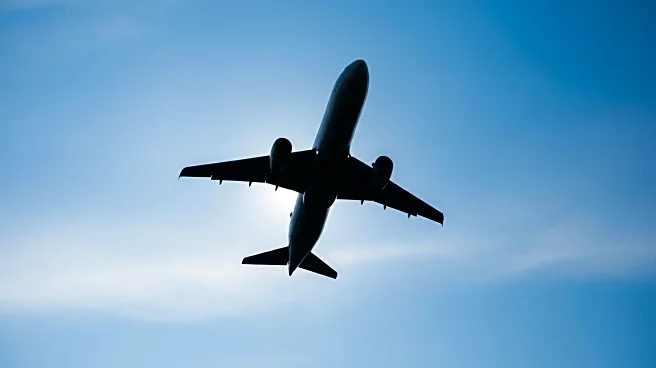What's Happening?
Swedavia, the operator of Sweden's airports, is experiencing significant growth following the abolition of the country's aviation tax in July. Elizabeth Axtelius, Director of Aviation Business, reported that 2025 has been a strong year for Swedavia's ten airports, with high demand for air travel and record load factors. The company has welcomed seven new airlines and added 35 new routes, including 24 from Stockholm and nine from Gothenburg. The long-haul market is also expanding, with new services to Tokyo, Bangkok, and Phuket, and increased frequencies on intercontinental routes by major airlines such as Air China, Delta Air Lines, Air Canada, and Qatar Airways. Despite challenges in the domestic market, particularly in southern Sweden, the abolition of the aviation tax is expected to enhance connectivity and support foreign trade.
Why It's Important?
The expansion of Swedavia's routes and the abolition of the aviation tax are significant for Sweden's economy and its position in the global aviation market. The increased connectivity is likely to boost tourism and business travel, supporting economic growth. The move aligns with Sweden's need for better connectivity to major intercontinental hubs, which is crucial for foreign trade. The changes may also alter regional dynamics, as Scandinavian Airlines shifts focus to Copenhagen, potentially increasing competition and lowering fares. Overall, the developments could transform Sweden into a more attractive destination for international travelers and businesses.
What's Next?
Swedavia is expected to continue expanding its route offerings and enhancing connectivity, particularly within Europe and to major intercontinental hubs. The company may face challenges in adapting to changing market dynamics, including the shift in Scandinavian Airlines' focus. However, the growing demand for travel in the region presents opportunities for Swedavia and its airline partners. The continued investment in new traffic and routes is likely to support Sweden's economic growth and strengthen its position in the global aviation market.
Beyond the Headlines
The abolition of the aviation tax and the expansion of Swedavia's routes may have broader implications for Sweden's environmental policies and its commitment to sustainable travel. As air travel demand increases, there may be pressure to balance economic growth with environmental concerns, potentially leading to new policies or initiatives aimed at reducing the carbon footprint of the aviation industry.








